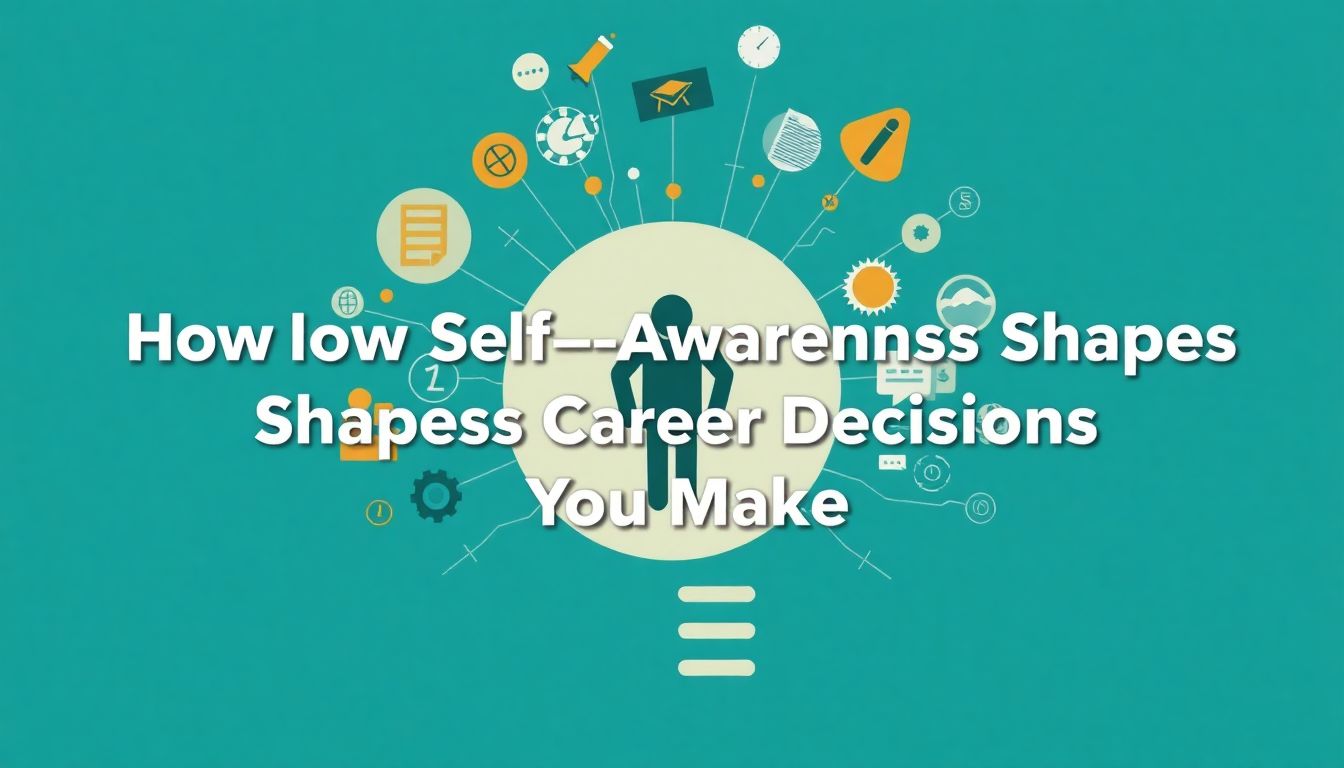Every professional journey is full of decisions—some small, some life-changing. Whether it’s accepting a new job offer, switching industries, going back to school, or launching your own business, the choices you make shape your path.
But here’s the truth most people overlook: better decisions don’t start with more information. They start with more self-awareness.
When you truly understand who you are—your values, strengths, priorities, and triggers—you’re able to make career decisions that align with your goals and identity, not just with outside expectations or temporary emotions. Let’s explore how self-awareness plays a central role in making smarter, more aligned choices.
Clarity About What You Really Want
It’s easy to get caught in the noise of what you should want: a promotion, a title, a salary bump, or a job at a well-known company. But if you’re not in touch with your inner motivations, you might chase goals that don’t actually lead to fulfillment.
Self-awareness helps you pause and ask:
- Is this opportunity aligned with my personal values?
- Will this move support the kind of life I want to build?
- Am I being driven by purpose—or pressure?
These questions bring clarity. They help you focus on what truly matters instead of what temporarily impresses.
Understanding Your Decision-Making Patterns
Everyone has a natural decision-making style. Some people rush in. Others overthink for weeks. Some avoid choosing at all.
Self-awareness helps you identify your tendencies:
- Do you tend to say yes out of guilt or fear of missing out?
- Do you delay decisions because you fear failure?
- Do you often rely on external validation instead of internal clarity?
Knowing your patterns allows you to challenge them. You begin to choose based on insight, not instinct. That leads to decisions you can stand behind—no regrets.
Evaluating Opportunities With Your Values
Your values are your internal compass. When you know what you stand for, you can evaluate every opportunity through that lens.
For example:
- If you value flexibility, will this new job allow space for your personal life?
- If you value impact, will this project contribute to a cause you care about?
- If you value learning, does this role offer growth or new challenges?
Self-aware professionals don’t just ask, “Can I do this?” They ask, “Should I do this, based on who I am and what I value?”
Recognizing Internal Resistance
Sometimes, we feel stuck or hesitant to make a move—and it’s not because the decision is wrong, but because there’s fear involved. Self-awareness helps you notice the difference between resistance that protects you and resistance that limits you.
Ask yourself:
- Am I hesitating because this is truly not right?
- Or am I hesitating because it’s unfamiliar and uncomfortable?
Naming the fear—fear of failure, judgment, or instability—gives you the power to address it. You may still feel afraid, but you won’t let fear run the show.
Setting Boundaries With Confidence
One of the hardest parts of decision-making is saying no—especially to opportunities that look good on the surface. Self-awareness gives you the clarity and confidence to decline what isn’t aligned.
This might mean turning down a higher-paying role that conflicts with your values, or saying no to a project that stretches you too thin. The more you know yourself, the easier it becomes to protect your energy, time, and focus.
Learning From Past Choices
Self-awareness also means looking back. What decisions have led to progress, and which ones have caused regret? What were the signs you ignored? What lessons keep repeating?
You’re not meant to get everything right the first time. But when you practice reflection, every decision becomes a learning tool. You start to notice the moments when you listened to your gut—and when you didn’t.
These insights help you fine-tune your decision-making muscles and avoid repeating past mistakes.
Tuning Into Your Long-Term Vision
Every decision should be a step toward the bigger picture. But to do that, you need to know what that picture looks like.
Self-awareness helps you define your vision—not just where you want to work, but how you want to live. It connects your daily actions to long-term purpose.
Before making a major move, ask yourself:
- Is this bringing me closer to the future I want?
- Does this align with the person I’m becoming?
When you answer from a place of truth, the path becomes clearer—even if it’s still challenging.
Making Peace With Uncertainty
Even the most self-aware people can’t predict the outcome of every choice. But here’s the difference: they can trust themselves. When you’ve done the work to understand who you are, you can move forward without needing guarantees.
You’ll know that whatever happens, you’ll handle it. You’ll learn. You’ll grow. And that’s the foundation of resilient, empowered decision-making.
Career Growth Starts on the Inside
You don’t need to control every outcome. You need to know yourself well enough to choose what’s right for you. That’s how you build a career that doesn’t just look good—but feels good.
Self-awareness isn’t about overthinking. It’s about being honest. When you bring that honesty into your decision-making process, you start creating a career that’s not based on chance or pressure—but on alignment and purpose.
